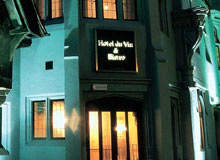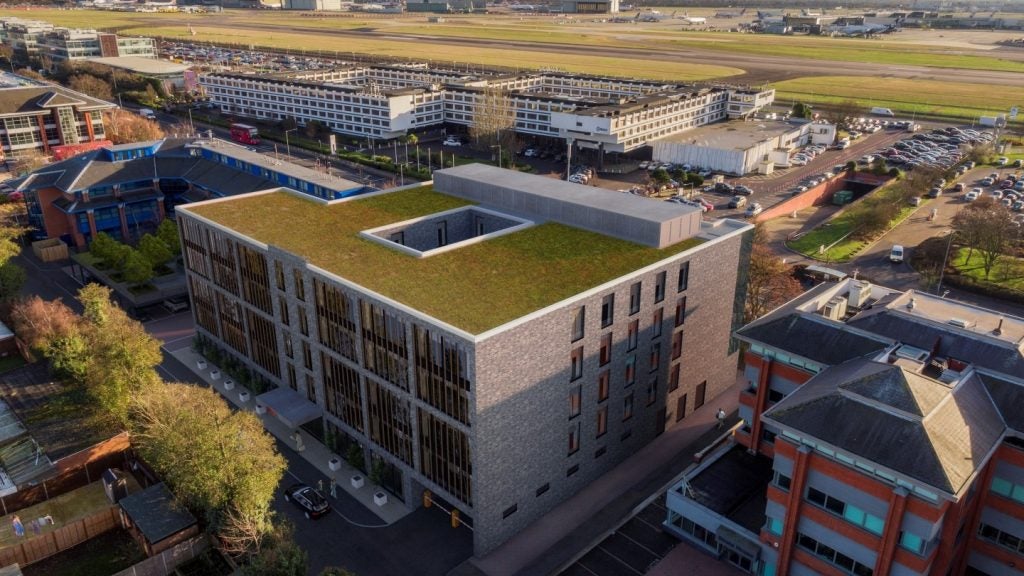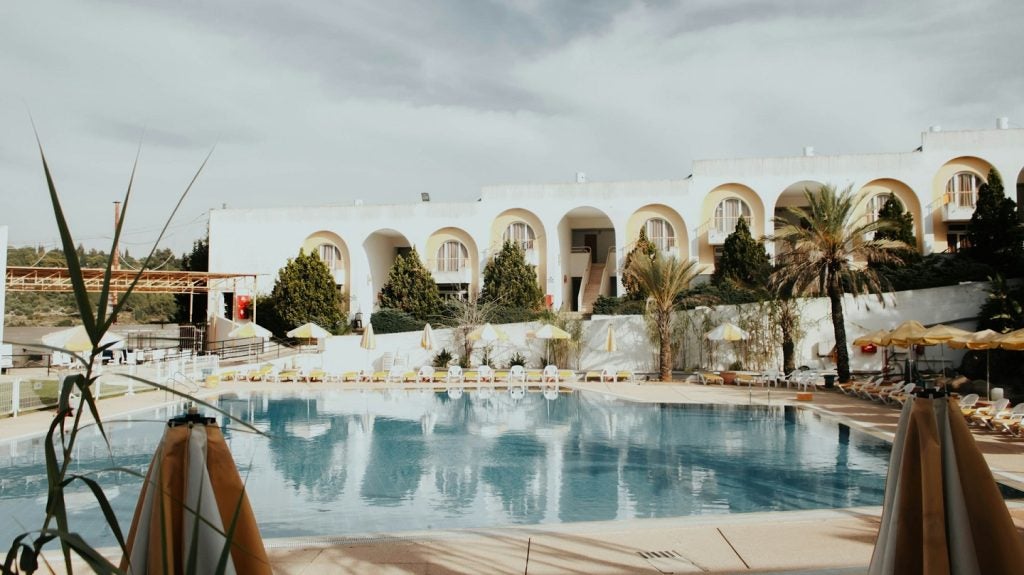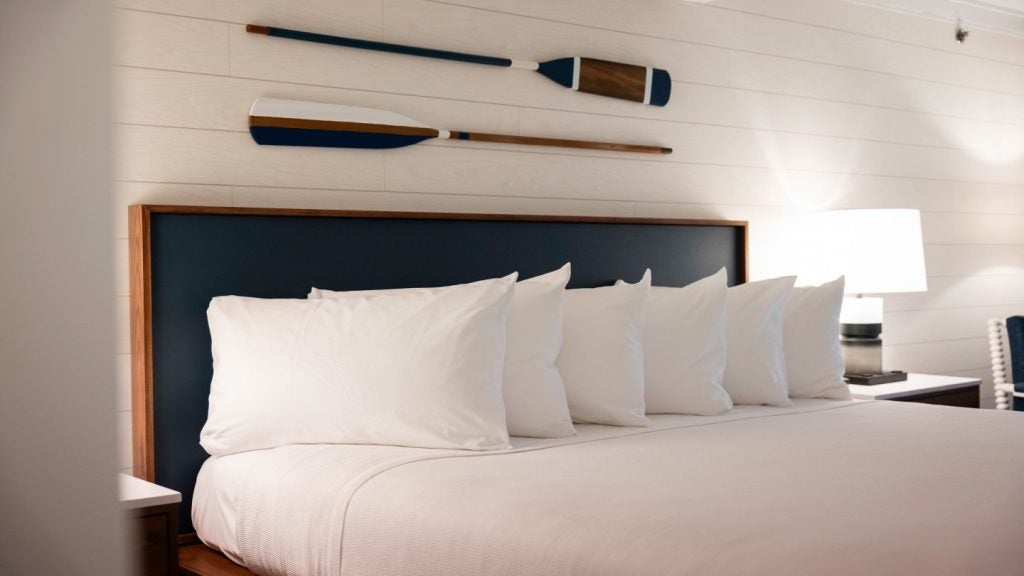
When wine experts Robin Hutson and Gerard Basset founded the first Hotel du Vin in Winchester in the UK in 1994, their aim was to bring quality wine to the British hotel market at affordable prices.
Central to the hotel was its wine bar and sommelier, and its overnight success was quickly followed by another six hotels in the UK.
Their recipe for providing excellent wine and food for guests and the local community in uniquely styled bars is obviously a winning formula. The bars are styled on the world of wine, with memorabilia, books, paintings and leather armchairs to maximise the experience for guests and non-guests alike.
The hotels epitomise a growing focus on hotel bars and the range of beverages, particularly wines, to be found within them.
Head sommelier Henri Chapon explains: “The approach is different in the bar because we sell a lot of wine by the glass. When people are dining in the restaurant they drink something to complement their meal. In the bar, people are more daring and they may have a glass of something they haven’t tried before.”
The hotels’ revenue from food and beverages is almost as high as that from accommodation: 36% rooms, 32% food, 29% beverage and 3% other sources.
How well do you really know your competitors?
Access the most comprehensive Company Profiles on the market, powered by GlobalData. Save hours of research. Gain competitive edge.

Thank you!
Your download email will arrive shortly
Not ready to buy yet? Download a free sample
We are confident about the unique quality of our Company Profiles. However, we want you to make the most beneficial decision for your business, so we offer a free sample that you can download by submitting the below form
By GlobalDataThe chain was bought in 2004 by Marylebone Warwick Balfour, which also owns the Malmaison Group. However, the hand of expert Basset, who came second in the World Best Sommelier championships in Athens, has left its mark.
According to Rebecca Hughes, marketing manager for Hotel du Vin, it is the knowledge of the founders, Chapon, and the sommeliers at each of the hotels that has ensured their success.
“It’s all about demystifying wine and having trained people to make suggestions, but we would hate to think we’re doing a hard sell. If people still just want to have a glass of house wine, then that’s fine – it will always be of good quality.”
Most wines are between £15 and £30, with more expensive bottles at around £60–70. The most expensive is £1,200 for a burgundy Romanée-Conti.
The house wines are Vin de Pays d’Oc Chardonnay from Caves du Sieur d’Arques for the white and Vin de Pays d’Oc Merlot from Caves du Sieur for the red, both sold at £13 a bottle.
Chapon organises the training of the sommeliers, who are required to take exams and visit vineyards round the world to keep up to date with the latest developments in the industry.
They also travel to Cuba to ensure the hotels’ extensive cigar collection is the best. “They go testing because if they are going to be talking to people about the wines on their lists, they need to know what they are talking about,” Chapin says.
“There is no compromise on training. I travel round the hotels to draw up training plans on an individual basis. Each sommelier is also in charge of their own wine list, which means they are different in every hotel. This helps keep the good ones working for us as it is the buying they are interested in.”
Although the company stocks wine from all over the world, all the purchasing is done in the UK and the chain does not bulk buy.
While the Hotel du Vin chain is proving its success in the UK, where sommeliers usually look to the rest of Europe, Africa and Australasia for their wines, hotels in wine-growing regions attract customers by specialising in local produce.
As the only four-star hotel in central Bordeaux, the Burdigala Hotel has to ensure it consistently offers the best from the region. Faced with stiff competition from independent wine bars, châteaux and wine shops, the hotel looks to attracts connoisseurs by offering well-researched local wines in its intimate bar and restaurant.
DEMAND FOR QUALITY
Sales manager Marc Verpaalen has installed a statue of Bacchus, the god of wine, in the hotel’s restaurant to show just how crucial good wine is to the hotel.
The hotel approaches its wine bar in a different way, as the French, who make up nearly half its clientele, are more likely to drink aperitifs in the bar and wine in the restaurant.
Verpaalen explains: “The people who are asking for wine are coming from abroad. When we serve it by the glass it’s usually whatever bottles are open, so to try something special they do need to buy the bottle from the list.”
Each year the hotel’s owner, Thierry Gaillac, and his sommelier, Nicolas Peladeau, receive the negotiators from the châteaux in Bordeaux and draw up the wine list.
“The owner is involved in the buying process,” says Verpaalen. “Often people ask for him. He’ll taste the wine and ask other people what they think. He is always keen to try new wines.”
The most expensive wine on the list is a 1er Grand Cru Classè 1996 from Châteaux Margaux at €330, with a Château Lafite Rothschild 1996 not far behind at €290.
On the reds the wine list includes 11 Saint-Emilion, ranging from a 1er Grand Cru Classè 1996 for €299 to a more modest Grand Cru from the Château Petit Gravet 1997 at €23.
The wine list is almost exclusively French and largely made up of wines from the region, with only the concession of a few Spanish vintages at the request of a regular client.
Again, Verpaalen insists it is the hotel staff’s extensive knowledge of the wines and aperitifs that draws customers to the bar and increases the revenue. “We need to have the best wines that are produced in the region,” he explains.
“Our clients are not coming here to drink something that is brought in from California; they want the best of the wine available from the middle of Bordeaux, and it’s our job to make sure that’s available to them.”
On the shores of Lake Como in Italy, the five-star Grand Hotel Tremezzo Palace is also responding to customer-led demand for quality and local wines.
In 2002 the hotel opened its Escale Bar to create extra revenue by offering an informal alternative to the main restaurant without compromising the quality of the food and wine.
General manager Elena de Santis comments: “The discerning guests will often choose their wine first and then combine food to go with it, possibly suggested by a professional sommelier. The wine bar is different; it is a fourth dining option, and without it some of the guests would go elsewhere to drink and eat.”
The wine bar is designed to cover a niche in the hotel’s service by providing an Italian wine-tasting experience with four or five wines and a description of each by the sommelier. This is combined with food chosen to enhance the flavour of each wine.
Local wines and foods are promoted through the Escale Bar, which is open to external customers – and increases revenue.
Across the Tyrrhenian Sea on the island of Sardinia, the Park Hotel Cala di Lepre has reacted to customer demand for expertise in locally produced wine and foods by opening the Tavernetta bar.
This four-star, family-orientated hotel on the Capo D’Orso on the north-eastern edge of the island is part of the Delphina Hotels chain. All the 150 Sardinian, Italian and international wines available are selected by the hotel manager and are available by the glass with a selection of locally produced cold meats, salami and cheeses.
Giusi Steri, spokesman for the hotel, says the bar, which resembles a cellar, was opened because of customer demand, and although in its early days, is a revenue winner.
And when wine simply is not enough, oysters and Champagne are offered in the terrace bar at the five-star La Sirenuse hotel in Positano, Italy, where bartenders Domenico Cuomo and Pietro Buzzetta enjoy a legendary reputation for their expertise.
The best sellers are Pink Champagne Louis Roederer and Kristal, served in handmade glasses from Murano by Carlo Moretti with oysters flown in fresh from France.
LUNCHTIME DRINKING
Freshness is the key to bars and the Hotel du Vin hotels have found a groundbreaking way to serve more wines by the glass without wasting dozens of half-empty bottles.
The group has bought a Cruvinet machine for each of its hotels at a cost of £10,000 each. The machine, manufactured in the USA, allows bars to provide more wines by the glass, as it stores opened bottles in a temperature controlled cabinet and removes the wine from a vacuum created in the bottle via a pipe.
Chapon explains: “We were not able to sell a lot of wines by the glass before and now we are selling more wine because we are able to offer this variety by the glass.
“One area where it has made an impact is the lunchtime trade because people will drink one glass because they have to work or drive, so they are more inclined to choose one special glass, which is likely to be more expensive.”
However, Henri says value for money is also the key to good sales: “It is important to always keep an eye on the value for money and, the more you spend, the better the value for money becomes – and it shows in the sales.”
It seems today’s wine bar is a good investment for customers and hoteliers alike, as everybody benefits from better quality wines and service, while promoting regional produce and boosting sales. Most people in the hotel industry would drink to that.







